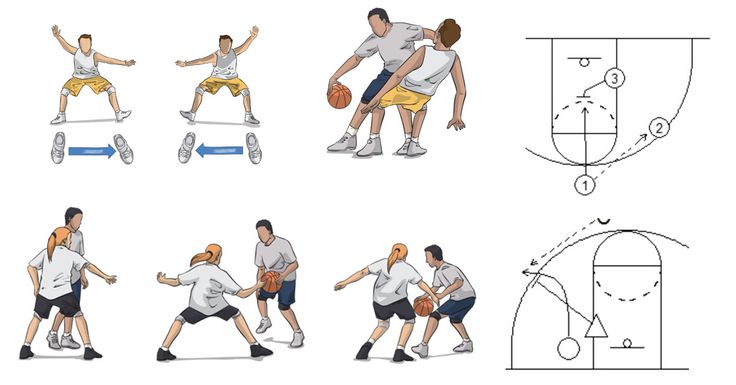Introduction to Basketball Skill Assessments
Basketball is more than just a game of hoops; it’s a blend of skill, strategy, and athleticism. Basketball skill assessments are vital for coaches, players, and teams looking to improve their game. Whether you’re evaluating youth players or seasoned athletes, understanding How Long Is Halftime in College Basketball Games and preventing injuries and how to effectively assess basketball skills can make all the difference in player development and team performance.
Understanding Basketball Skill Assessments
What Are Basketball Skill Assessments?
Basketball skill assessments refer to the process of evaluating a player’s capabilities in various aspects of the game. This can include shooting, ball handling, passing, defense, and teamwork. Coaches often use these assessments to identify strengths and weaknesses, helping players to focus on areas that need improvement.
Why Are Skill Assessments Important?
Skill assessments are essential for several reasons:
- Personalized Training: They help create customized training plans that address individual needs.
- Performance Tracking: Regular assessments allow for tracking progress over time.
- Team Composition: Understanding player skills helps in forming balanced teams.
Key Components of Basketball Skill Assessments
Shooting Skills
Evaluating Shooting Technique
When assessing shooting skills, focus on:
- Form and Mechanics: Look for proper stance, grip, and follow-through.
- Shooting Range: Evaluate a player’s ability to shoot from different distances.
- Consistency: Check how often they can make shots under pressure.
Shooting Drills for Assessment
- Spot Shooting: Players shoot from designated spots on the court.
- Free Throws: Assess shooting under pressure with free throws.
- Game Situations: Simulate game scenarios to see how players perform.
Ball Handling Skills
Dribbling Techniques
Ball handling is crucial for any basketball player. Key areas to assess include:
- Control: Evaluate how well a player dribbles with both hands.
- Speed: Check how quickly they can move while dribbling.
- Creativity: Observe how they handle defenders and create space.
Dribbling Drills
- Cone Dribbling: Set up cones to navigate while dribbling.
- Two-Ball Dribbling: This enhances coordination and control.
- Defender Drills: Use a defender to challenge dribbling skills.
Passing Skills
Types of Passes
Assessing passing skills involves evaluating:
- Accuracy: How often the passes reach the intended target.
- Timing: The ability to pass at the right moment.
- Variety: Proficiency in different types of passes (chest, bounce, overhead).
Passing Drills for Assessment
- Partner Passing: Assess accuracy and timing with a partner.
- Passing on the Move: Evaluate passing while moving in different directions.
- Game Simulation: Create game scenarios to test decision-making in passing.
Defensive Skills
Evaluating Defensive Techniques
Defense is just as critical as offense. Key components to assess include:
- Positioning: Proper stance and spacing against an opponent.
- Footwork: Quickness and agility in staying in front of a player.
- Anticipation: The ability to read plays and intercept passes.
Defensive Drills
- Closeout Drills: Assess how well players close out on shooters.
- One-on-One Defense: Evaluate individual defensive skills.
- Team Defense Drills: Focus on communication and teamwork in defense.
Effective Assessment Strategies
Create a Structured Assessment Plan
A structured plan can streamline the assessment process. Consider these steps:
- Set Clear Objectives: Determine what skills you want to evaluate.
- Use a Variety of Drills: Incorporate different drills to assess multiple skills.
- Provide Feedback: Offer constructive feedback after assessments.
Utilize Technology for Assessment
With advancements in technology, many coaches now use video analysis tools. This allows for:
- In-Depth Analysis: Reviewing players’ performances in detail.
- Tracking Progress: Easily compare assessments over time.
- Engagement: Using video can engage players more in their learning.
Conclusion
Basketball skill assessments are crucial for player development. By understanding and implementing effective assessment strategies, coaches can nurture talent and enhance overall team performance. Remember, the goal is to create a supportive environment where players can grow and improve.
FAQs
- How often should skill assessments be conducted?
- Ideally, assessments should be done at the beginning of the season and periodically throughout to track progress.
- What age is appropriate for skill assessments?
- Skill assessments can be beneficial for players of all ages, starting from youth leagues to professional levels.
- Can skill assessments help with team strategy?
- Absolutely! Understanding each player’s strengths and weaknesses allows coaches to devise better strategies.
- What tools can help with basketball skill assessments?
- Video analysis software, stat tracking apps, and even simple score sheets can help in the assessment process.
- How can players prepare for skill assessments?
- Players should focus on practicing their fundamentals, staying in shape, and being open to feedback.
By focusing on comprehensive assessments, both players and coaches can enhance their skills and take their game to the next level!




